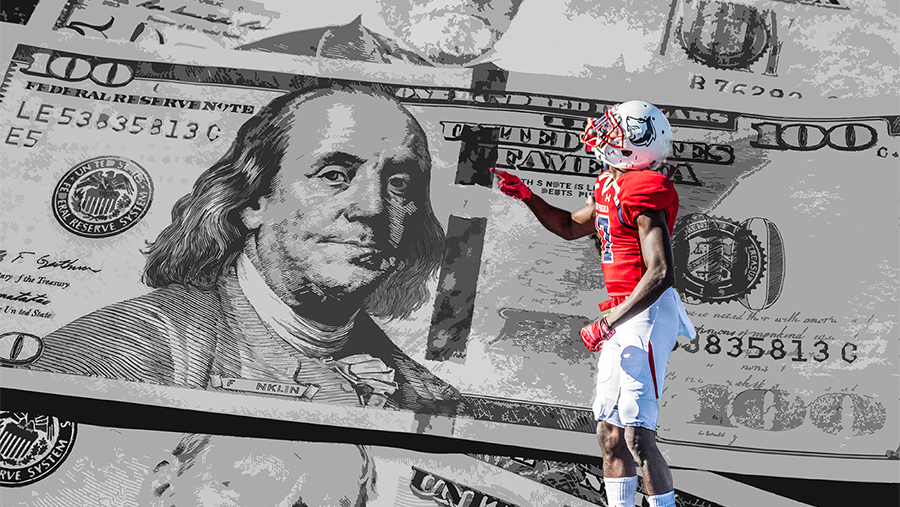Breaking with a long-held stance on athlete compensation, the NCAA Division I schools top rules-making group Wednesday approved policy changes that would enhance athletes’ ability to make money from their name, image and likeness, beginning July 1, 2021.
The decision, announced by the NCAA, came hours before laws or executive orders in more than a dozen states, that will have the same impact, were set to take effect.
The policy will remain in place until federal legislation or new NCAA rules are adopted.
“This is an important day for college athletes since they all are now able to take advantage of name, image and likeness opportunities,” NCAA President Mark Emmert said. “With the variety of state laws adopted across the country, we will continue to work with Congress to develop a solution that will provide clarity on a national level. The current environment, both legal and legislative, prevents us from providing a more permanent solution and the level of detail student-athletes deserve.”
The policy provides the following guidance to college athletes, recruits, families, and member schools:
- Individuals can engage in NIL (name, image, likeness) activities that are consistent with state laws where the school is located. Colleges and universities may be a resource for state law questions.
- College athletes who attend a school in a state without a NIL law can engage in this type of activity without violating NCAA rules related to NIL.
- Individuals can use a professional services provider for NIL activities.
- Student-athletes should report NIL activities consistent with state law or school and conference requirements to their school.
“Today, NCAA members voted to allow college athletes to benefit from name, image and likeness opportunities, no matter where their school is located,” said Division I Board of Director’s Chair Denise Trauth, president, Texas State. “With this interim solution in place, we will continue to work with Congress to adopt federal legislation to support student-athletes.”
While opening NIL opportunities to student-athletes, the policy in all three divisions preserves the commitment to avoid pay-for-play and improprieties tied to choosing to attend a particular school. Those rules remain in effect.
“The new policy preserves the fact college sports are not pay-for-play,” said Division II Presidents Council Chair Sandra Jordan, chancellor, the University of South Carolina, Aiken. “It also reinforces key principles of fairness and integrity across the NCAA and maintains rules prohibiting improper recruiting inducements. It’s important any new rules maintain these principles.”
Division III Presidents Council Chair Fayneese Miller, president, Hamline, said the association would continue to work athletes and their families to navigate NIL.
“The new interim policy provides college athletes and their families some sense of clarity around name, image and likeness, but we are committed to doing more,” Miller said. “We need to continue working with Congress for a more permanent solution.”
The temporary policy will remain in place until federal legislation, or new NCAA rules, are adopted. With the NIL interim policy, schools and conferences may choose to adopt their own policies.
Photo courtesy CitizenEd














